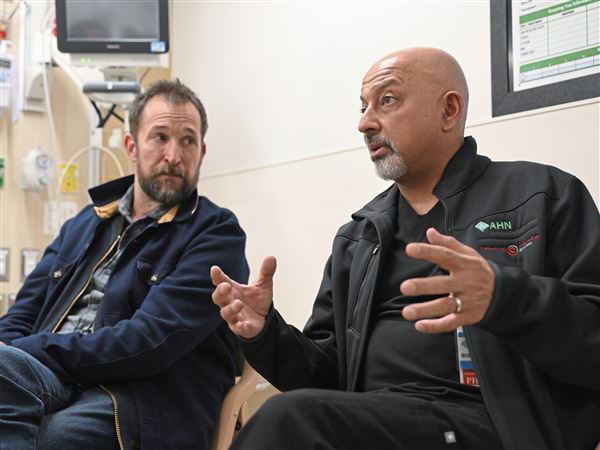“Your writing is grotesque.” That was the professor’s comment, scrawled atop Kurt Eichenwald’s first college English paper, he reveals in the fifth chapter of his fifth book, “A Mind Unraveled: A Memoir.”
Ballantine Books ($28).
Later, circumstances dictated that the young Mr. Eichenwald write a paper during a period of exhaustion and confusion following a crushing grand mal seizure. He braced himself for another humiliation. But the professor gave that paper an A, adding “kudos about its insight,” Mr. Eichenwald writes.
If there’s anything more interesting than the typical human brain, it’s the slightly miswired human brain, and society’s reactions to it. Mr. Eichenwald, until recently a Dallas-based senior writer at Newsweek and a contributing editor at Vanity Fair, has a particularly hard-to-control variety of epilepsy. “A Mind Unraveled” is his account of his early struggles with seizures and the responses they triggered, from the dorm room to the newsroom.
It’s also an often-delicious bid to settle some scores.
Mr. Eichenwald, twice a Pulitzer Prize finalist while working for The New York Times, may be best known for his second book “The Informant,” about a whistleblower who revealed price fixing by Archer Daniels Midland. It was made into a movie starring Matt Damon.
Now Mr. Eichenwald is the star, and the evil institution is Swarthmore College, especially the student health center psychologist and top administrators who did everything they could to thwart his youthful goal of graduating on schedule.
The supporting villains are mostly doctors, many of whom “thought their electronic toys and numbers and charts were the key, so they shortchanged digging for every detail,” Mr. Eichenwald writes. Between them, the docs and academics nearly killed him, as he tells it.
Family and friends saved him, rallying (sometimes belatedly) to his defense and coming up with coping mechanisms as his college roommates did when they gave his seizures the name “Michael.”
That allowed them to talk about his epilepsy without alerting everyone else in the vicinity, and it also helped the young Mr. Eichenwald to separate his self-image from his condition.
Those who have never endured a neurological condition, or had a close family member with one, may be surprised at the jungle of bad advice, low expectations and thoughtless discrimination that Mr. Eichenwald describes. It’s tempting to think that some things have improved since the 1980s, in which most of the book is set. But much remains the same, and some of the modest gains are now threatened -- like insurance coverage for pre-existing conditions.
“What about other people with epilepsy who don’t have someone to pay the bill for them? Do they all just die?” Mr. Eichenwald asks his supportive (and well-insured) parents at one point. “So if I — so if any of us — ever lose our jobs, we could die? … What kind of a world do we live in?”
Reasonable question then, and now.
Mr. Eichenwald became the subject of news last year when a Maryland man sent him a tweet with an attachment that strobed as it displayed the message, “You deserve a seizure for your posts.” The attachment caused a seizure, and the sender was charged criminally. That incident gets no mention in “A Mind Unraveled.” It obviously hasn’t slowed his writing, nor deterred him from talking about his disorder.
Mr. Eichenwald never quite answers the question begged by Chapter 5: Was his epilepsy central to his development as a writer? He asks at one point whether convulsions could be “temporarily allowing a smarter part of me to take control or simply making my thoughts clearer?”
This much is clear: Mr. Eichenwald’s struggles spurred his career choice.
He caught the investigative bug during a seizure-shortened summer internship with the Better Government Association in Chicago. While hospitalized there following a near-fatal collapse, he resolved to become a reporter. “In that job,” he writes, “I would always be learning, interacting with others, and seeing the world.”
Later, while temporarily exiled from Swarthmore, he learned of a case of discrimination by a county agency against a health department doctor with multiple sclerosis. He investigated the matter, turned his findings over to a newspaper reporter and “developed a conviction toward championing the powerless. This spawned a contained, controllable rage that has stayed with me ever since,” he writes.
Mr. Eichenwald’s rules of journalistic engagement are an antidote to the oft-uttered lie that most journalists are indifferent to the truth. His code: “Never lie, assess character, appeal to principles, answer every question, and determine what impediments might keep [a potential source] from speaking.”
He’s a friend of the people — especially those with inconvenient truths to tell. In telling his own story, he’s a special friend to those whose brains are a little balky, and to those of us who love them.
Rich Lord: rlord@post-gazette.com or 412-263-1542
First Published: October 27, 2018, 4:00 p.m.


















